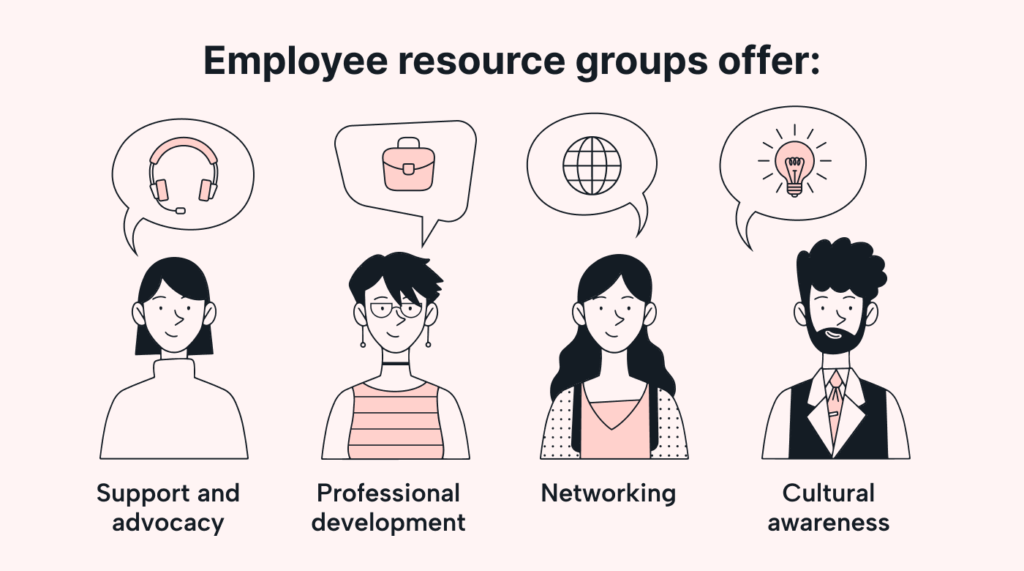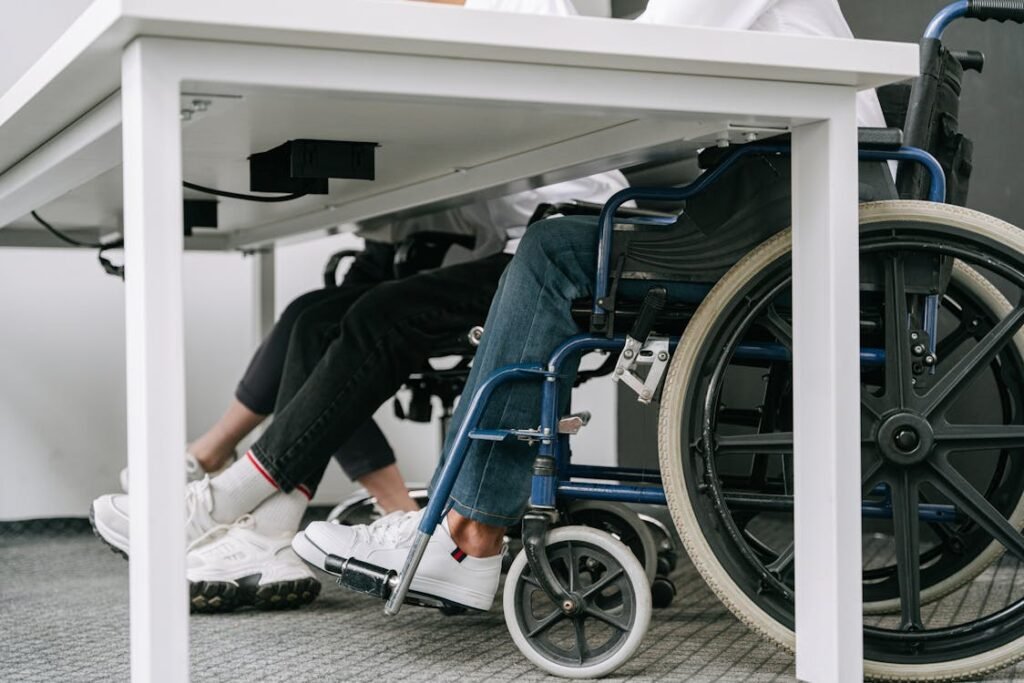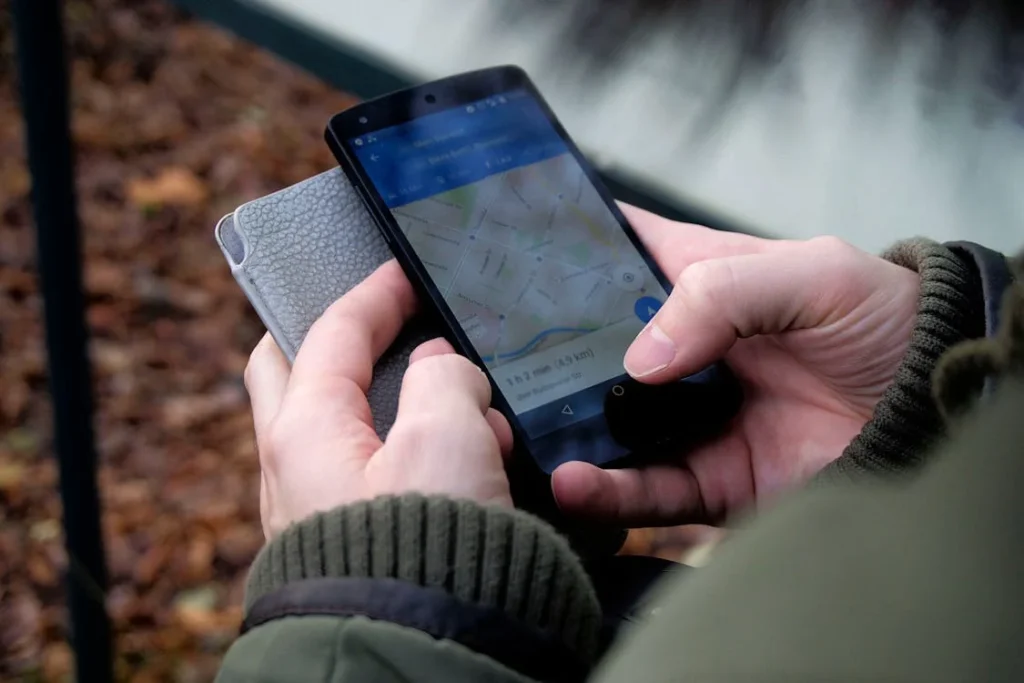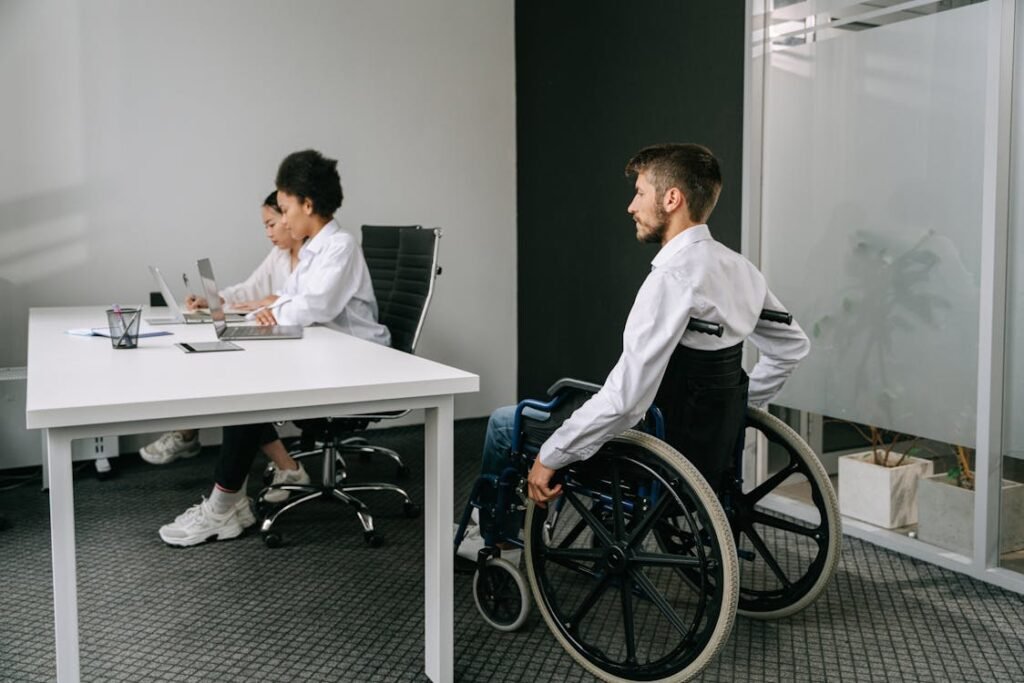Workplaces are changing. More companies now understand that diversity and inclusion are not just good ethics but also smart business strategies. Among the different ways companies support their employees, Employee Resource Groups (ERGs) play a powerful role. These groups help workers from different backgrounds find support, share experiences, and make positive changes in their workplaces.
For disabled employees, ERGs can be life-changing. They create safe spaces where people with disabilities can connect, voice their concerns, and work toward solutions that improve their work environment. But these groups don’t just help individuals—they also help businesses become more inclusive, accessible, and productive.

What Are Employee Resource Groups (ERGs)?
Employee Resource Groups (ERGs) are voluntary, employee-led groups that bring together workers with shared experiences or interests.
These groups often focus on supporting underrepresented employees, including women, racial minorities, LGBTQ+ individuals, veterans, and people with disabilities.
ERGs are not just social clubs—they are platforms for employees to share their challenges, propose workplace improvements, and help shape company policies.
For disabled workers, ERGs serve as a crucial support system. Living with a disability often comes with unique challenges, especially in the workplace.
From physical accessibility issues to biases in hiring and promotions, disabled employees frequently encounter barriers that others may not notice. ERGs help to bridge this gap by giving disabled workers a voice and a community where they feel understood.

How ERGs Support Disabled Workers
A well-structured ERG can make a significant difference in the professional lives of disabled employees. These groups provide multiple benefits that help workers feel included, valued, and empowered in their roles.
Creating a Safe Space for Open Conversations
One of the biggest benefits of an ERG is that it creates a safe space for disabled employees to share their experiences without fear of judgment.
Many employees hesitate to talk about their disabilities due to stigma or the fear of being treated differently. An ERG offers them a supportive environment where they can express their concerns, discuss challenges, and seek advice from others who have faced similar experiences.
For example, an employee who struggles with an invisible disability, such as a chronic illness, may feel misunderstood by coworkers. Through an ERG, they can connect with others who relate to their struggles and gain emotional support.
Driving Policy and Workplace Improvements
ERGs do more than provide emotional support—they also drive meaningful change. Since ERGs operate within a company, they can directly influence workplace policies and advocate for better accommodations.
For example, if a company’s office is not wheelchair accessible or lacks assistive technology, the ERG can bring these concerns to management and propose solutions.
If there is a need for more flexible work arrangements, such as remote work options or adjusted schedules, the ERG can help push for those changes.
Educating the Workforce and Raising Awareness
Many people do not fully understand the challenges faced by their disabled colleagues. ERGs help educate the workforce by hosting training sessions, panel discussions, and awareness campaigns.
These initiatives promote understanding and help break down stereotypes about disability in the workplace.
For instance, an ERG might organize a workshop on inclusive communication, teaching employees how to interact respectfully with colleagues who have disabilities.
Or they might invite guest speakers with disabilities to share their experiences and insights on making workplaces more inclusive.
Mentorship and Career Growth
Disabled workers often face obstacles when it comes to career advancement. They may struggle with biases in hiring and promotions or lack access to professional development opportunities.
ERGs can help by offering mentorship programs where experienced employees guide and support their disabled colleagues.
A mentor who has successfully navigated workplace challenges can provide career advice, help with skill development, and encourage professional growth. This support can make a huge difference in an employee’s confidence and career progression.
Building a Sense of Belonging
Feeling like an outsider at work can be discouraging. An ERG helps disabled employees feel like they belong by connecting them with others who share their experiences. This sense of community can boost morale, reduce stress, and increase job satisfaction.
When employees feel valued and included, they are more likely to stay with their company. This benefits both the workers and the organization, leading to lower turnover rates and a more engaged workforce.

How Companies Can Make ERGs More Effective
While Employee Resource Groups (ERGs) can be powerful tools for supporting disabled workers, their success depends on how they are structured and managed.
Simply having an ERG is not enough—it must be well-organized, actively supported by leadership, and focused on making a real impact. Here’s how companies can ensure their ERGs are as effective as possible.
Leadership Support is Crucial
For an ERG to be successful, it needs strong support from company leadership. When executives and managers actively encourage and participate in ERG activities, employees feel that their concerns are taken seriously.
Leadership support also ensures that ERGs have the necessary resources—such as funding, meeting spaces, and time allowances—to operate effectively.
Executives can take part in ERG meetings, listen to employee concerns, and take action based on the group’s recommendations. When leadership is involved, it sends a clear message that inclusion and accessibility are company priorities.
Clear Goals and a Defined Mission
An ERG should have a clear purpose. Without defined goals, the group may struggle to stay focused or create meaningful change. A strong ERG sets objectives such as:
- Advocating for better workplace accessibility
- Raising awareness about disability inclusion
- Providing mentorship and career support
- Recommending policy improvements to HR
By outlining specific goals, ERGs can measure their impact and ensure they are truly benefiting disabled employees.
Encouraging Participation from All Employees
Although ERGs are designed for specific employee groups, they should be open to allies as well. Disability-focused ERGs can benefit greatly from the involvement of non-disabled employees who want to support their colleagues.
Encouraging wider participation helps foster an inclusive culture where disability awareness becomes a shared responsibility. It also allows more employees to learn about accessibility challenges and contribute to solutions.
Collaboration with Other ERGs and Departments
A disability-focused ERG should not operate in isolation. It should collaborate with other ERGs and company departments, such as HR, diversity and inclusion teams, and employee wellness programs.
For example, an ERG for disabled employees could partner with a women’s ERG to address challenges faced by women with disabilities in the workplace.
Or it could work with HR to develop more inclusive hiring and training programs. This cross-group collaboration strengthens overall diversity and inclusion efforts within the company.
Regular Feedback and Continuous Improvement
An ERG should continuously evolve to meet the changing needs of disabled employees. Gathering feedback through surveys, focus groups, or one-on-one discussions ensures that the ERG remains relevant and effective.
Companies should also track the impact of ERGs by measuring factors like employee satisfaction, workplace accessibility improvements, and the success of mentorship programs. If something isn’t working, adjustments can be made to enhance the ERG’s effectiveness.
Promoting ERG Visibility
If employees don’t know about an ERG, they can’t benefit from it. Companies should actively promote ERGs through internal newsletters, company meetings, and onboarding programs for new hires.
Providing accessible ways for employees to join and participate—such as virtual meetings for remote workers or sign language interpreters for deaf employees—ensures that everyone who wants to be involved can do so.

The Business Benefits of Supporting Disabled Employees Through ERGs
Creating an inclusive workplace isn’t just the right thing to do—it also benefits businesses in significant ways. When companies actively support disabled employees through ERGs, they foster a culture of respect, collaboration, and innovation.
This leads to increased employee satisfaction, stronger retention rates, and even financial advantages. Here’s how supporting ERGs for disabled workers can positively impact businesses.
Increased Employee Engagement and Retention
Employees who feel supported and valued are more likely to stay with their employer. For disabled workers, an ERG provides a sense of belonging and ensures that their voices are heard.
When companies show a commitment to inclusivity, disabled employees are more engaged, motivated, and loyal.
High turnover rates are costly for businesses due to the expenses involved in hiring and training new employees. By fostering an inclusive environment where disabled workers feel comfortable and supported, companies can reduce turnover and retain skilled professionals.
Enhanced Workplace Productivity
Accessibility improvements and accommodations—often driven by ERGs—don’t just help disabled employees; they benefit the entire workforce.
Features such as flexible work arrangements, assistive technologies, and ergonomic workspaces create a more efficient and comfortable environment for all employees.
For instance, captioning tools designed for employees with hearing impairments can also help those working in noisy environments.
Speech-to-text software benefits employees who struggle with typing, but it can also enhance productivity for those who prefer voice commands. These improvements contribute to a more effective and streamlined workflow.
Stronger Brand Reputation and Social Responsibility
Companies that actively support disability inclusion build a strong reputation as ethical and socially responsible organizations. Consumers, investors, and potential employees take notice of businesses that prioritize diversity.
In today’s competitive market, having a strong commitment to inclusion can set a company apart and attract top talent.
Additionally, organizations that promote disability inclusion are more likely to receive recognition through industry awards and media coverage, further enhancing their reputation.
Compliance with Legal and Ethical Standards
Supporting disabled employees through ERGs helps businesses stay ahead of legal and ethical requirements related to workplace accessibility and anti-discrimination policies.
Laws such as the Rights of Persons with Disabilities Act (RPwD) in India and the Americans with Disabilities Act (ADA) in the United States mandate that companies provide reasonable accommodations for disabled employees.
By proactively addressing accessibility and inclusion through ERGs, companies can ensure compliance with these laws while fostering a positive work environment. This reduces the risk of legal issues and demonstrates a genuine commitment to fair and equal treatment.
Encouraging Innovation and Problem-Solving
Inclusive workplaces drive innovation. When employees from diverse backgrounds come together, they bring fresh perspectives and unique problem-solving skills.
ERGs create opportunities for disabled employees to share ideas on improving workplace accessibility, products, and services.
Many companies have developed groundbreaking innovations inspired by the needs of disabled employees and customers.
For example, voice assistants and screen readers were initially designed to assist individuals with disabilities but are now widely used by the general public.
Encouraging input from disabled employees through ERGs can lead to similar advancements that benefit both the company and society.

The Long-Term Impact of ERGs on Workplace Inclusion
When Employee Resource Groups (ERGs) are well-structured and supported, they do more than just provide a sense of community—they create lasting change within the workplace.
Over time, these groups help build a culture of inclusion where employees with disabilities feel valued, respected, and empowered to thrive.
Improving Retention and Job Satisfaction
One of the biggest challenges companies face is retaining talented employees. Many disabled workers leave their jobs due to a lack of support, inaccessible workplaces, or feeling excluded from company culture.
A strong ERG helps prevent this by addressing employee concerns and fostering a supportive work environment.
When disabled employees feel heard and included, they are more likely to stay with their company. Higher retention rates mean businesses can keep skilled workers and avoid the costs associated with hiring and training new employees.
Encouraging Inclusive Hiring Practices
ERGs play a significant role in shaping company hiring policies. They can advocate for more accessible job application processes, such as ensuring that career websites and interview formats are inclusive.
For example, if a company’s hiring process unintentionally excludes candidates with disabilities—perhaps because its job application system is not screen-reader friendly—an ERG can bring attention to the issue and suggest improvements.
They can also help companies develop outreach programs to attract more candidates with disabilities.
Shaping a More Accessible Workplace
Workplace accessibility goes beyond just ramps and elevators. It includes everything from digital accessibility to flexible work arrangements.
ERGs help companies identify areas where accessibility improvements are needed and push for changes that make the workplace more inclusive.
For instance, if employees with visual impairments struggle with certain software tools, an ERG can work with IT teams to find accessible alternatives.
If employees with chronic illnesses need more flexible scheduling, the ERG can advocate for remote work options or additional sick leave policies.
Changing Workplace Culture
An inclusive workplace is not just about policies—it’s about culture. ERGs help shift workplace attitudes and behaviors by fostering open conversations about disability, challenging stereotypes, and promoting respect.
When companies actively support ERGs, they send a message that inclusion is a core value.
Over time, this creates a workplace culture where employees are more aware of accessibility needs, more accepting of differences, and more committed to creating an equitable work environment.
Strengthening Business Performance
Companies that prioritize diversity and inclusion often see direct business benefits. Studies have shown that diverse teams perform better, are more innovative, and make better decisions.
By ensuring that disabled employees have a voice, ERGs contribute to a stronger, more dynamic workforce.
Additionally, businesses that are known for being inclusive attract a wider customer base. Many consumers prefer to support companies that value diversity and accessibility.
By actively promoting inclusivity, companies can enhance their brand reputation and build stronger connections with their audience.

The Role of Technology in Strengthening ERGs for Disabled Workers
Technology has transformed the way Employee Resource Groups (ERGs) function, making them more accessible, effective, and impactful.
Digital tools and virtual platforms now allow ERGs to connect employees across locations, ensuring that even remote or hybrid workers can participate fully.
For disabled employees, technology plays an even greater role by removing barriers to engagement, providing assistive tools, and enabling more inclusive collaboration.
Virtual ERGs for Greater Accessibility
Traditional in-person ERG meetings may not always be accessible to employees with disabilities. Some may struggle with mobility challenges, while others may have medical conditions that limit their ability to attend physical gatherings.
Virtual ERGs offer a solution by allowing employees to join meetings from the comfort of their homes or offices, eliminating the need for travel and making participation easier.
Video conferencing platforms with built-in accessibility features, such as closed captioning for deaf employees or screen reader compatibility for visually impaired workers, ensure that everyone can engage meaningfully.
The use of chat-based platforms, discussion forums, and recorded meetings further enhances accessibility, allowing employees to participate in ways that best suit their needs.
Assistive Technology for Inclusive Communication
Effective ERGs rely on clear communication, and assistive technology helps ensure that disabled employees can contribute fully.
Voice-to-text software enables individuals with mobility impairments to type using speech commands, while screen readers and magnification tools allow visually impaired employees to access ERG materials.
For employees with hearing disabilities, sign language interpretation services and real-time transcription tools improve engagement in virtual and in-person discussions.
Workplace collaboration platforms, such as Microsoft Teams and Slack, provide text-based communication options that help employees with auditory processing challenges.
By integrating these assistive tools into ERG operations, companies demonstrate a commitment to inclusivity and ensure that every member can participate without limitations.
Data-Driven ERGs for Meaningful Change
Technology also allows ERGs to gather and analyze data to advocate for better workplace policies. Digital surveys help ERGs understand the needs of disabled employees, track participation levels, and measure overall satisfaction with workplace accessibility.
Anonymous feedback forms encourage employees to share concerns without fear of stigma, providing valuable insights into areas that need improvement.
With the support of HR and diversity teams, ERGs can use this data to build compelling cases for change.
If multiple employees report difficulties accessing office spaces or digital tools, ERGs can present clear evidence to management, making it easier to push for accessibility upgrades. By leveraging data, ERGs become powerful forces for workplace transformation.
Expanding ERG Reach Through Social Media and Internal Networks
In large organizations, employees may not always be aware of available ERGs. Internal communication channels, such as company intranets and email newsletters, help promote ERG activities and encourage participation.
Social media platforms, both internal and external, also allow ERGs to share success stories, raise awareness about disability inclusion, and build connections with other diversity initiatives.
Live-streamed events and virtual conferences hosted by ERGs can educate a wider audience, including allies and decision-makers who may not have previously engaged with disability-related discussions.
By increasing visibility through digital platforms, ERGs ensure that their message reaches more employees, fostering a stronger and more inclusive workplace culture.

The Importance of Allyship in ERGs for Disabled Workers
While Employee Resource Groups (ERGs) primarily exist to support specific communities within the workplace, their impact is significantly amplified when allies participate.
Allyship plays a crucial role in making ERGs for disabled workers more effective, fostering a culture of inclusion, and ensuring that accessibility initiatives gain broader organizational support.
When non-disabled employees actively engage with disability-focused ERGs, they help break down barriers, challenge biases, and contribute to meaningful change.
Building Awareness and Understanding
Many employees may have little exposure to the challenges faced by their disabled colleagues. Misconceptions, unconscious biases, and a lack of awareness often create unintentional barriers in the workplace.
When allies join ERGs, they gain firsthand knowledge of the experiences of disabled employees, helping to dispel myths and increase understanding.
Through participation in discussions, workshops, and awareness campaigns, allies learn how to create a more supportive work environment.
They become more mindful of inclusive language, the importance of accessible communication, and how workplace policies can either enable or hinder the success of disabled employees.
This awareness leads to small but impactful changes in day-to-day interactions, making the workplace more welcoming for everyone.
Amplifying the Voices of Disabled Employees
One of the biggest challenges disabled workers face is feeling unheard. While ERGs provide a platform for employees to voice their concerns, having allies involved strengthens their advocacy efforts.
When allies actively listen and use their positions of influence to amplify the concerns of disabled employees, the likelihood of meaningful change increases.
For example, a manager who is an ERG ally can advocate for better accessibility features in office spaces or champion more inclusive hiring practices within their department.
When non-disabled employees take on the responsibility of supporting accessibility initiatives, it shifts the burden away from disabled employees, who often have to repeatedly justify the need for change.
Creating a Culture of Shared Responsibility
A truly inclusive workplace is one where disability inclusion is not just the responsibility of disabled employees but a shared effort across all teams.
When allies take an active role in ERGs, they send a powerful message that accessibility and inclusion are workplace priorities, not just concerns for a select group.
This shared responsibility can be seen in various ways, such as employees making sure meeting spaces are accessible, team members advocating for inclusive hiring policies, or managers ensuring that digital tools are usable by all employees.
When disability inclusion becomes a collective effort, it leads to lasting cultural shifts that benefit everyone.
Encouraging Leadership Buy-In
While ERGs can suggest changes to improve workplace accessibility, the implementation of these changes often depends on leadership approval.
When allies—especially those in leadership positions—actively support ERG initiatives, it increases the likelihood that proposed changes will be taken seriously.
Executives and managers who participate in ERG meetings, attend disability awareness events, and publicly support accessibility initiatives set a powerful example.
Their involvement not only legitimizes the ERG’s work but also influences company-wide policies that improve conditions for disabled employees.
The Role of Peer Support in Everyday Interactions
Allyship is not just about large-scale policy changes; it is also about everyday interactions that make disabled employees feel valued.
Simple actions, such as ensuring that meeting materials are accessible, giving credit to disabled colleagues for their contributions, or stepping in to challenge ableist behavior, can make a significant difference.
When allies create a work environment where disabled employees feel respected and included, it enhances job satisfaction, confidence, and overall well-being. These daily acts of support reinforce the idea that inclusion is an ongoing effort, not just a corporate initiative.
Conclusion
Employee Resource Groups are not just a nice addition to the workplace—they are essential for creating an inclusive and supportive environment for disabled employees. From offering emotional support and career development to driving policy changes and improving workplace accessibility, ERGs play a vital role in shaping a more equitable workforce.
For companies that truly want to support their disabled employees, investing in strong ERGs is a step in the right direction. By fostering open conversations, advocating for meaningful change, and promoting a culture of inclusion, these groups help businesses and employees thrive together.



